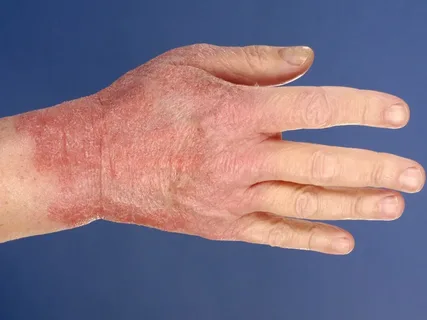Is your skin covered with dry, cracked, itchy, oozing, or crusting patches? Are the rashes spread over the trunk, knees, elbows, and scalp? This may be eczema, a chronic skin condition that can be very discomfiting and painful. The raw, sensitive skin even disturbs concentration and sleep patterns.
Individuals may not suffer from the painful symptoms all the time, as eczema flares up in cycles. There may be good “scratch-free” days for weeks, and the disease may crop up and stay for months. It’s an unpredictable condition that is said to have a genetic predisposition, so we need to look out for:
- Thickened skin with small raised bumps
- Inflammation with blisters
- redness of skin
- Black or brown thick skin that seems swollen
- Rash or itchiness
- Dry, cracked, crusting, and oozing skin
- Raw and sensitive skin
- Scratchy feeling
- Dark skin around the eye region
Eczema triggers at a glance:
Eczema is a common condition affecting people of all ages. The flare-up periods can be severe during the relapse, and the skin improves when the person is in remission. What is the root cause of eczema?
- Genes and environment: The real reason for eczema is unknown, but genes, heredity and environmental factors play a significant role in the manifestation of this disease. There is a genetic predisposition, and people with a family history have more chance of developing this medical condition. People who have dermatitis or eczema running in their families are more likely to show symptoms.
- People with a history of allergies, hay fever, or asthma face a higher risk of developing eczema.
- Allergens such as pet hair, pollen, and certain foods such as shellfish can also trigger allergies that can lead to atopic dermatitis. Pet fur, dander, dust mites, mold, and pollen are categorized as environmental allergens that are a part of our daily life, and you cannot get rid of them partially. Allergies could also result from pesky mites in your mattress or bed. So, try to avoid these triggers, and for this, wash bedding regularly and air the carpet.
- Food: Food is not only for sustenance; many of us indulge in different fruits, vegetables, and other substances to satisfy our taste buds. But, there are some common food allergens, including eggs, wheat, shellfish, cows milk, soya, peanuts, or other nuts and berries. Processed foods, canned foods, etc., can lead to inflammation in the body, and this can cause a strong reaction and trigger eczema. Highly processed or sugary foods can also cause inflammation and trigger eczema. It would be best to have professional supervision to prevent eczema from getting triggered. Keep a log to target potential triggers and create a food log.
- Chemicals commonly in homes can lead to eczema flare-ups. You may not realize that the soap, shampoo, body wash, surface cleaners, disinfectants, or detergent you use every day may be the leading cause of your eczema rash. Chemicals such as ammonia and chloride can irritate your skin.
- Irritants: Irritants that cause a reaction when they come in contact with the skin. Have you noticed that itching worsens after your body encounters certain fabrics? Wool, polyester, rayon, nylon, etc, are synthetic fibres that can irritate the skin. Wear a gentler material such as cotton, and make sure you sun-dry-washed clothes before wearing them. Woollen and synthetic garments should be avoided at all costs.
- Stress: The body does not react happily to stress. Whenever we feel stressed out, the body releases cortisol. This hormone is responsible for increasing eczema symptoms and augments the inflammation in the body. You can control the rising stress by meditating, deep breathing, trying to sleep adequately, exercising, talking to a support group, asking for help from a loved one, or seeing professional help. Minimize your situation!
- Temperature changes: Extreme temperatures are not healthy for the body. Thus, try to stay away from heat, too dry, humid, too cold, excessive sweating, etc. The fact is the environment and weather can agitate itching on the skin. Excessive exercise can cause agitation because salty sweat irritates the skin. Dry or freezing air removes the natural moisture in the skin. The skin needs moisture and will stay rash and dryness-free only if moisturized from deep within. Wear loose clothes and dab away the sweat!
- Hormonal changes: In women, eczema can result from hormonal changes because this can lead to a lack of proper hydration. The fall in oestrogen levels causes the water and moisture to reduce during pregnancy, menopause, or menstruation, leading to dehydrated skin prone to eczema.
Undoubtedly, internet offers functional medicine training online courses but a skilled dermatologist can help you understand the root causes of the disease and deal with it better. Eczema triggers and root causes are different for everyone, so you must be very particular about what agitates the skin. Moreover, an excellent moisturizing routine and understanding the reasons can be helpful and keep you eczema free!





